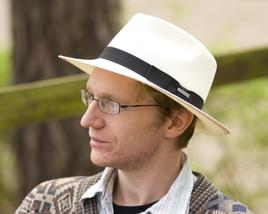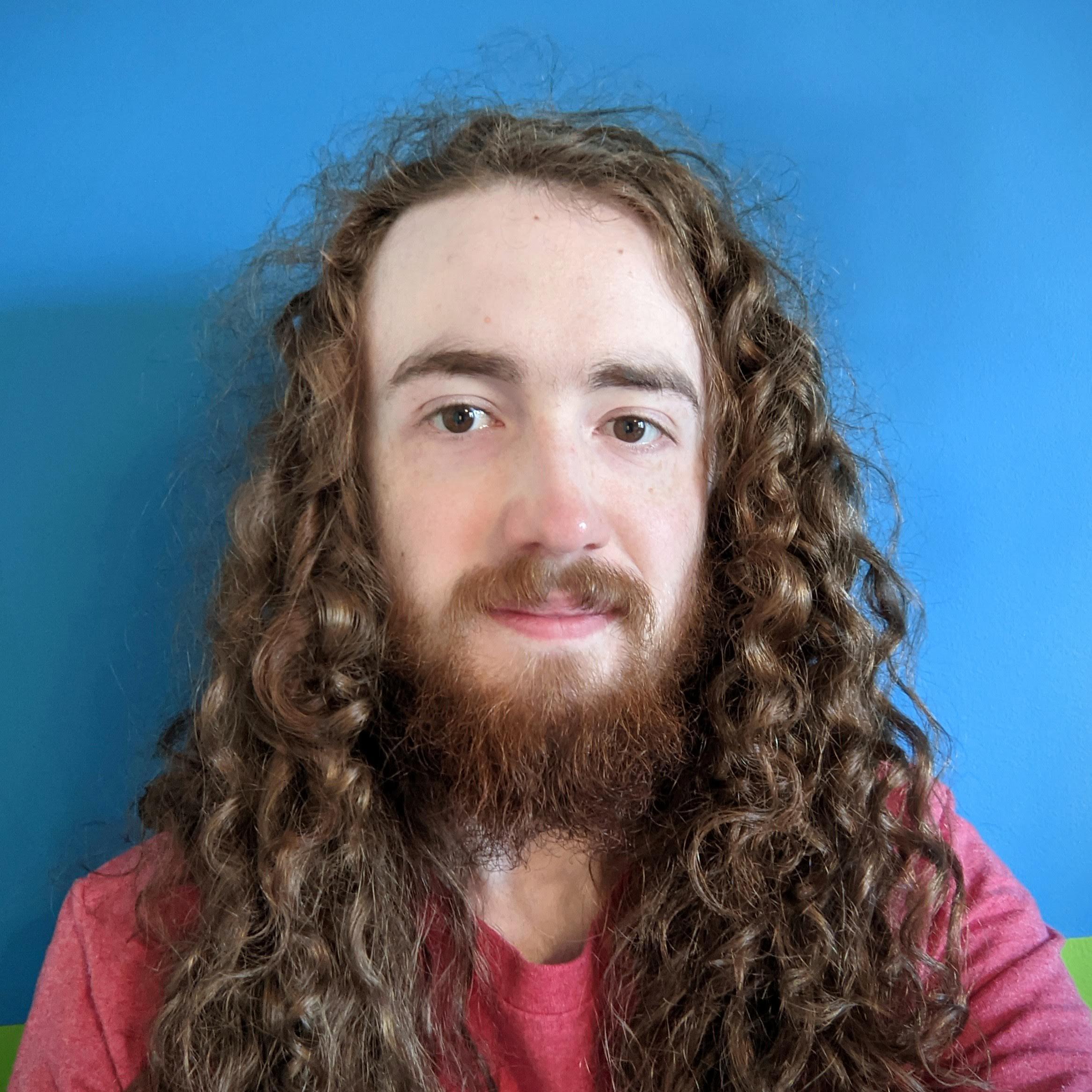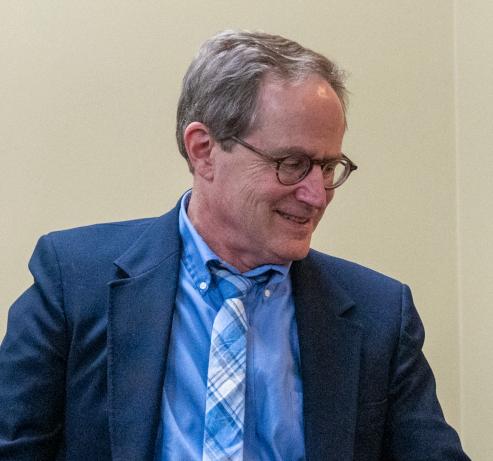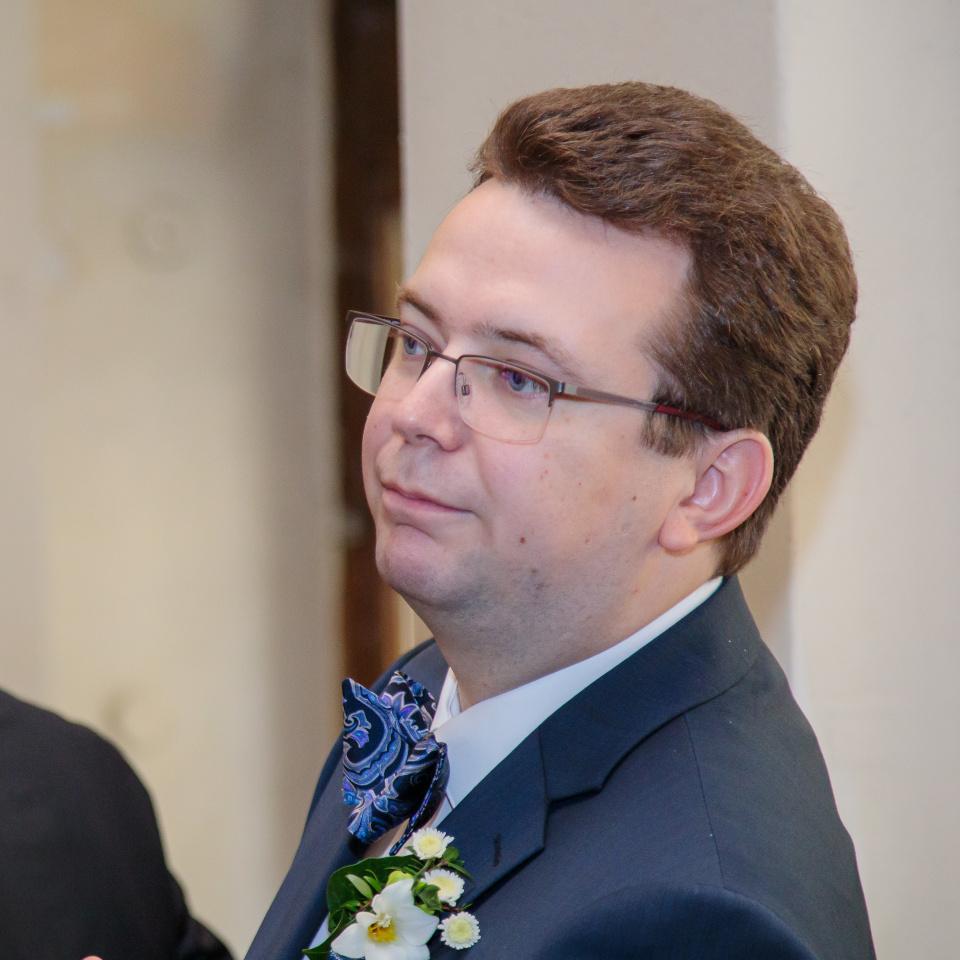 Arthur Rosendahl (né Reutenauer)
Arthur Rosendahl (né Reutenauer)From Karl Berry for the TUG elections committee:
Nominations for TUG President and the Board of Directors in 2023 have been received and validated. Because there is a single nomination for the office of President and because there are not more nominations for the Board of Directors than there are open positions, there is no requirement for a ballot this election.
For President, Arthur Rosendahl was nominated. As there were no other nominees, he is duly elected and will serve for a two-year term.
For the Board of Directors, the following individuals were nominated: Barbara Beeton, Max Chernoff, Ulrike Fischer, Jim Hefferon, Tom Hejda, Jérémy Just, Norbert Preining, Boris Veytsman. As there were not more nominations than open positions, all the nominees are duly elected to a four-year term. Thanks to all for their willingness to serve.
New terms for President and members of the Board of Directors will begin with the Annual Meeting. Congratulations to all.
Board member Paulo Cereda has decided to step down. Paulo was appointed to the Board in 2021 to fill a position that remained open after the election. His dedication and service to the community are gratefully acknowledged.
The notice for this election, informal guidelines for TUG board members, roster of current and past board members, and announcements and information about previous elections are available: 2021, 2019, 2017, 2015, 2013, 2011, 2009, 2007, 2005, 2003, 2001, 1999, 1997.
Election statements by all candidates are given below. They and will also be printed in the next regular issue of TUGboat.
 Arthur Rosendahl (né Reutenauer)
Arthur Rosendahl (né Reutenauer)Biography: I first came across TeX as a mathematics student 25 years ago and was instantly hooked. A few years later, my interest in languages gave me another angle to look at TeX and related programs, especially Metafont. I have been involved in some aspects of their development ever since, through packages such as polyglossia and hyph-utf8, and have participated in many conferences to meet with other TeX enthusiasts, and spread the knowledge. I am mostly a ConTeXt user nowadays. I love TeX and its ecosystem for the freedom it gives its users and the taste of beautifully typeset documents.
My involvement with TUG started in 2005 at the annual conference in Wuhan (since then known for other things …) and I have been on the board for ten years, the last six of which as vice president. I've been part of the organisation committee of the three online TUG conferences from 2020 to 2022 and am also active in other user groups of the TeX world, as the founding president of the ConTeXt Group, and a board member of GUTenberg, the French-language TeX users group. I was incidentally born on the year TUG was founded.
Statement: While TeX itself hasn't changed at all since Don Knuth released version 3 in 1990, almost every single program around it has, as well as the way we use them. The set of users has grown dramatically, as well as their reason for using them, and while one may think that there is less justification for a nonprofit organisation today—when commercial companies such as Stack Exchange and Overleaf have seemingly taken over the stage—I believe that the TeX Users Group is more necessary today than ever, as a gathering place for all the people who give their time, their energy, and not seldom their personal money, so that this beautiful program can long endure.
 Barbara Beeton
Barbara Beeton(Candidate for TUG board of directors.)
Biography: For TeX and the TeX Users Group:
Retired from the American Mathematical Society.
Publications communicating the history of TeX.
Statement: Although I will be retired from the AMS I intend to continue to be active in TUG, where I have made so many good friends. As the oldest user group in the worldwide TeX community, TUG provides a focus for dedicated TeX users and developers.
I believe there's still a place in the TUG ranks for one of the “old guard”, to provide institutional memory when it's appropriate, and cheer on the younger folks who are trying new things.
With support from the members of this wonderful community, I'd like to continue for four more years.
 Max Chernoff
Max Chernoff(Candidate for TUG board of directors.)
Biography: I was a fairly advanced user of Microsoft Word, but about 6 years ago I became frustrated with its clumsy input. I discovered LaTeX and I immediately fell in love. All of my free time was quickly replaced by me making new document styles and remaking old documents.
These days, I process most of my documents with ConTeXt, although I occasionally use LaTeX and Plain. I am the author of the LuaTeX package lua-widow-control as well as the associated TUGboat articles.
I am currently studying Math and Physics as an undergraduate at the University of Calgary.
Statement: Despite its remarkable design, TeX is beginning to show its age. The TeX community has put in extensive work to develop modern improvements like LuaTeX, expl3, and BibLaTeX/Biber, yet most IDEs/editors, publishers, and tutorials still recommend or require pdfLaTeX and BibTeX. These tools still have their place, but I believe that their limitations are a major barrier for newer users. As a TUG director, I would encourage the adoption of LuaTeX and Biber as defaults. I would also support modernisation in general, while maintaining backwards compatibility and avoiding unnecessary changes.
 Ulrike Fischer
Ulrike Fischer(Candidate for TUG board of directors.)
Biography: I was born in Stuttgart, Germany, and moved first to Switzerland with my parents and later to Bonn where I studied mathematics. I wrote my thesis in a rather arcane branch called model theory using an Atari text processor called Signum. But I did not like to have to place the many sub- and superscripts with a mouse. So when seeing an example LaTeX document, I ordered the floppy discs and never looked back.
I found my way into the LaTeX groups on the Internet and have always enjoyed and still enjoy answering questions and debugging errors. I also like to help new users to find their way into the TeX world.
Talks about accessibility and tagged PDF at Dante and TUG meetings induced me to write the tagpdf package and to present it to LaTeX team members at a workshop at the TUG meeting in Rio de Janeiro in 2018. This got me an invite to join the LaTeX Team and to work on the long term project to enable LaTeX to create tagged PDF thus ensuring that it will remain an important and relevant document source format. I also helped with the production of the third edition of the LaTeX Companion which hopefully will be released at end of April.
Statement: I joined the TUG board in 2020 on invitation and would be happy to serve four more years ( :-). Stable user groups like TUG can offer long term support and communication means that you don't get in fast changing internet groups. They also can organize in person meetings. The last years have shown to me that this is something that I would really miss. So when the TUG board discussed the next TUG conference, my husband Gert and I offered to be the local organizers in the summer of 2023. It would be really nice to welcome and meet many TUG members and other TeX friends in my hometown Bonn as a TUG board director!
 Jim Hefferon
Jim Hefferon(Candidate for TUG board of directors.)
Biography: My biography is that I have been a faculty member in mathematics for many years. I have used TeX and LaTeX since the early 90s for a variety of projects, including professional articles and open source technical books. I helped run CTAN for a decade. I have been on the TUG Board for a number of terms, including terms as Vice President, and I had the privilege of acting as President for a short time.
Statement: I would like to continue to work on bringing in new members, both to TUG and to the wider TeX community. Sometimes a group of experienced users could forget the needs of people starting out, and I try to be an advocate, to help keep them in focus.
 Tom Hejda
Tom Hejda(Candidate for TUG board of directors.)
Biography: I earned my master's in engineering in 2012 and my PhD in mathematics and computer science in 2016. Parallel to my studies, I was a technical LaTeX editor for a small journal for over 6 years. After a few years of postdocs, I joined Overleaf in 2019 as a support team member and later as a manager. I also volunteer with the Scouts movement as a manager and a DIYer, and at a local church as an organist.
Statement: I would like to join the Board for three reasons.
First, I have been helping run the online TUG meetings and it makes sense to me to continue to offer my help even as we hopefully move back to in-person meetings, with the possibility of running one of the conferences in Prague if there is interest.
Second, at Overleaf, we have a first-hand experience with a lot of LaTeX users and we are most likely the largest entity using TeX Live (our annual deployment of TeX Live to the users and the associated testing have helped with kernel and package debugging before), and I am happy to look for more improvements in this direction.
Third, I would like to offer my experience as a manager in the non-profit/volunteering sector to the TeX community by becoming a member of the Board.
 Jérémy Just
Jérémy Just(Candidate for TUG board of directors.)
Biography: I'm a biologist who studies plant genomes: over the years, I've worked on research projects on rapeseed, wheat, rose, and more recently mosses. As for LaTeX I had my first experience with it in 2000, spontaneously starting to use it to write my reports during my Master of Science. I never stopped.
I've been active in the LaTeX community on Usenet (fr.comp.text.tex) since 2003. There, I discovered the existence of TeX users groups and quickly became a member of GUTenberg, the French-speaking users group. In 2009, willing to help the community, I joined GUTenberg board, and started to serve the association as its treasurer, then as its president. I stayed at GUTenberg until 2022.
Within this association, I took care of the daily administrative stuff, kept the website up to date, set up a CTAN mirror, made the link with TUG and other groups… Since 2016, I'm also the main maintainer of the French-speaking LaTeX FAQ now hosted at https://www.latex-fr.net/ and I've translated several LaTeX documentations into French, notably the LearnLaTeX website, a tutorial targeting LaTeX beginners (https://www.learnlatex.org/).
The past few editions of the yearly TUG conference being held online, that offered me the opportunity to give a hand in their organization.
Statement: LaTeX is a wonderful tool for efficiently producing good-looking documents and plots. But one must admit that its learning curve is quite steep. I believe that TeX users groups have a strong role to play in lowering the first step, by encouraging all useful initiatives: writing documentations for all levels, translation of documentations, interactive web sites, video tutorials… As a side-effect, this would very certainly popularize the use of LaTeX in fields where it's not (yet) a habit to use it: biology, humanities …
 Norbert Preining
Norbert Preining(Candidate for TUG board of directors.)
Biography: I am a mathematician and computer scientist living and working whereever I find a job. After my studies at the Vienna University of Technology, I moved to Tuscany, Italy, for a Marie Curie Fellowship. After another intermezzo in Vienna I have settled in Japan since 2009, as Associate Professor, and since several years now in various companies mostly working on Machine Learning systems.
After years of being a simple user of (La)TeX, I first started contributing to TeX Live by compiling some binaries in 2001. In 2005, I started working on packaging TeX Live for Debian, which has developed into the standard TeX package for Debian and its derivatives. During EuroBachoTeX 2007, I got (by chance) involved in the development of TeX Live itself, which is now the core of my contribution to the TeX world. Up till now I am continuing with both these efforts.
Furthermore, with my move to Japan I got interested in its typographic tradition and support in TeX. I am working with the local TeX users to improve overall Japanese support in TeX (Live). In this course we managed to bring the TUG 2013 conference for the first time to Japan.
More details concerning my involvement in TeX, and lots of anecdotes, can be found at the TUG interview corner (tug.org/interviews/preining.html) or on my web site (preining.info).
Statement: After many years in the active development and eight years on the board of directors of TUG, I want to continue serving TUG and the wider TeX community.
The challenges I see for TUG remain the same over the years: increase of members and funds, and technical improvement of our software. Promoting TeX as a publishing tool also outside the usual math/CS environment will increase the acceptance of TeX, and by this will hopefully bring more members to TUG.
 Boris Veytsman
Boris Veytsman(Candidate for TUG board of directors.)
Biography: I was born in Odesa, Ukraine. After getting my degree in Theoretical Physics I worked in academia and industry, doing research in many areas including physics of fluids, materials science, biophysics, medical physics, air traffic safety, cellular communications, science of science, etc. I also performed TeX consulting for a number of customers from publishers to universities to government agencies to non-profits. My current CV and the list of publications is available at https://borisv.lk.net/cv/cv.html.
I have been using TeX since 1994 and have been a TeX consultant since 2005. I published a number of packages on CTAN and papers in TUGboat. I have been a Board member in 2010–2016, Vice-President in 2016–2017, and President in 2017–2023. I am an Associate Editor of TUGboat and support https://www.tug.org/books/. I support TUG accounts at Twitter (@TeXUsersGroup) and Mastodon (@TeXUsersGroup@TechHub.social).
TeX and friends are my primary tools and the source of my livelihood. I spend most of my working day producing TeX documents. I always felt that I ought to give back to the community: writing packages, editing, mentoring, and serving TUG in different capacities.
Statement: I think TeX is an important part of publishing infrastructure, of scientific communications, and of communications in many other areas, from music to literature to philology. It is our job as members of TUG to advocate it, to support it and to coordinate its development. It have been a privilege for me to be a part of this movement. I hope to be able to continue this service.